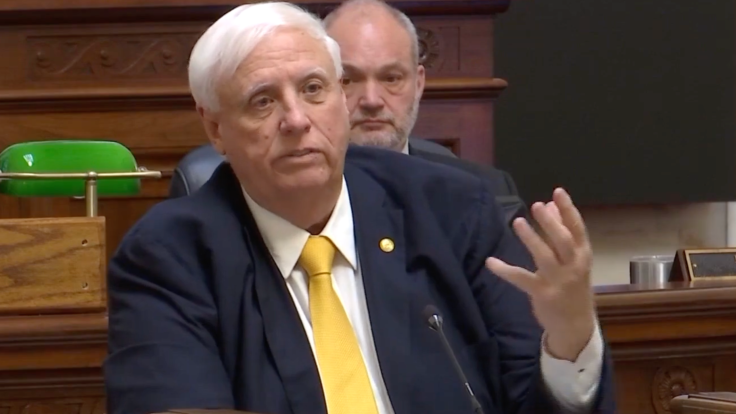IRS Sues GOP Senator Jim Justice Over Millions In Unpaid Taxes
The lawsuit raises questions about whether a sitting US senator is in full compliance with federal tax obligations

The federal government has moved to sue Senator Jim Justice (R–West Virginia) in a landmark tax enforcement action, claiming the senator and his wife owe £4.2 million ($5.16 million) in unpaid taxes, penalties, and interest dating from 2009.
The civil lawsuit, filed by the US Department of Justice on behalf of the IRS, represents one of the most significant financial and legal threats to a sitting US senator in recent years.
Government Charges and Legal Framework
According to court filings, the Justice Department asserts that as of 4 August 2025, Senator Justice and his wife, Cathy Justice, were indebted to the United States for £4.2 million ($5.16 million), plus statutory interest and other additions to tax. Sources state the debt arises from the 2009 tax year.
The complaint alleges that despite proper notice and demand for payment of the assessments, the 'defendants have neglected or refused to make full payment' of the assessments.
Separately but related, the IRS had previously filed federal tax liens against Justice's business interests and personal assets totalling in excess of £6.5 million ($8 million), which the senator had attributed to interest and penalties accruing over time.
The lawsuit raises questions about whether a sitting US senator is in full compliance with federal tax obligations, amid scrutiny of his prior role as governor and his business dealings in the coal industry.
From Coal Magnate to Senator
Jim Justice, 74, is a prominent figure in West Virginia politics and business. Before being elected to the US Senate in 2024, after serving the maximum two terms as governor, he made his fortune via coal-mining interests and the sale of major mines to the Russian firm Mechel in 2009.
That sale propelled him onto Forbes' billionaires list, but subsequent reports indicate mounting liabilities, including bank loans, environmental fines, and court judgments, have eroded his net worth.
The tax claim at issue dates back to the very year of the mine sale and may reflect the complexity of transitioning from business to politics, with tangled corporate interests and tax assessments challenging transparency.
Political and Personal Implications
For Justice, the timing could not be worse. Having entered the Senate representing West Virginia, a state hit hard by economic transitions, the lawsuit raises questions about his financial stewardship and ethical standing.
Justice's Senate office and his legal representatives declined immediate comment when the motion to settle was filed. However, in previous comments, Justice asserted the IRS's actions were 'political' and suggested the owed amounts stemmed from a 'few dollars' before interest and penalties mounted.
The settlement motion proposes that the Justice couple will pay the full amount of the assessments plus interest, though it did not specify a payment timeline and is subject to court approval.
In the wider political landscape, the case could fuel calls for increased scrutiny of congressional members' tax and financial disclosures, particularly for those with extensive business interests.
Court-documented tax liens filed by the IRS reveal that Justice's business empire, spanning hotels, resorts, and mining, faced more than US$8 million in federal tax claims and significant state-level obligations.
Among the properties subject to lien was the luxury resort The Greenbrier in White Sulphur Springs, West Virginia, a high-profile asset owned by Justice. These financial pressures appear to have overlapped with his political ambitions.
© Copyright IBTimes 2025. All rights reserved.





















